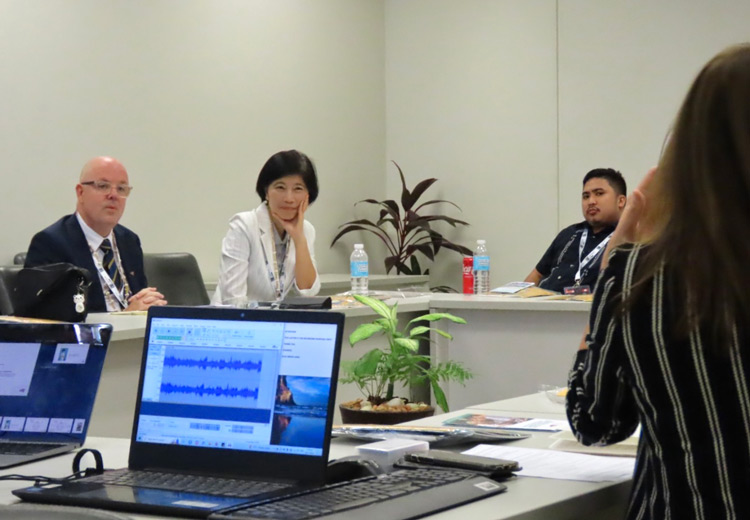How universities can drive student success through digital humanistic perspectives

Sponsored by

Building humanistic perspectives in graduates is essential to critically analyse the effects of technological advancements
Universities are realising the significance of humanism in helping graduates critically analyse the impact of scientific developments on human values. In the digital age, there is an increased need to incorporate humanistic perspectives into research to drive social progress.
A round table discussion at THE Campus Live SE Asia 2023, held in partnership with the City University of Hong Kong, brought together academic leaders from the Asia-Pacific region to discuss the role universities play in supporting students to take a humanistic approach to their disciplines.
Established in 1984, the City University of Hong Kong (CityU) has become one of the leading public research institutes in Hong Kong and a hub for innovative research and professional development. “A lot of our focus is on digital humanities perspectives,” said Richard M. Walker, dean of the College of Liberal Arts and Social Sciences at CityU. The university also prioritises understanding the effect of technological advancements on society and navigating the complexities around it.
Matthew Manning, head of the Department of Social and Behavioural Sciences at CityU, outlined ways to cultivate critical thinking skills in graduates to create societal impact. Manning shared examples of scientific developments and the impact of technology in areas such as crime science.
“Virtual reality or augmented reality have enabled social scientists to create controlled social environments or experiments,” he explained. We can develop a deeper understanding of human behaviour by analysing interactions within these settings.
The panel agreed that a multidisciplinary approach brings a holistic perspective to understanding nuances of human value through the impact of scientific developments. For instance, subjects like psychology have contributed to the theoretical development of various scientific disciplines, one panellist said.
Christine Huang Yi-Hui, head and chair professor in the Department of Media and Communication at the CityU, said the influx of information sources, such as social media, due to digital advancements can expose graduates to misinformation. Outlining ways to validate information and check its reliability is essential to guiding graduates in making strategic decisions and developing research across sectors.
Jason Harding, head of the Department of English at the CityU, said that it becomes challenging for universities to respond to political tensions stemming from scientific developments, especially when it affects academia in the afflicted countries. Exposing graduates to humanistic perspectives offered by various thinkers is essential to building holistic perspectives and critically analysing societal impact through technology.
The panel:
- Marilyn Arcilla, assistant vice-president for academic affairs, Mabalacat City College
- John Mark Borbon, head of the Quality Assurance and Technology Office, World Citi Colleges
- Simone Dilena, president for APAC, Times Higher Education (chair)
- Jason Harding, head of the Department of English, City University of Hong Kong
- Angela Yung-chi Hou, associate dean of the College of Education, National Chengchi University
- Yi-Hui Christine Huang, chair professor of Communication and Media, City University of Hong Kong
- Matthew Manning, head of the Department of Social and Behavioural Sciences, City University of Hong Kong
- Nestor Ong, deputy director for QS and THE Rankings, University of Santo Tomas
- Richard M. Walker, dean of the College of Liberal Arts and Social Sciences, City University of Hong Kong
Find out more about the City University of Hong Kong.